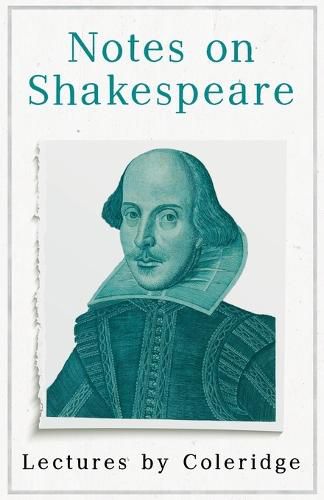Readings Newsletter
Become a Readings Member to make your shopping experience even easier.
Sign in or sign up for free!
You’re not far away from qualifying for FREE standard shipping within Australia
You’ve qualified for FREE standard shipping within Australia
The cart is loading…






This title is printed to order. This book may have been self-published. If so, we cannot guarantee the quality of the content. In the main most books will have gone through the editing process however some may not. We therefore suggest that you be aware of this before ordering this book. If in doubt check either the author or publisher’s details as we are unable to accept any returns unless they are faulty. Please contact us if you have any questions.
Samuel Taylor Coleridge (1772-1834) was an English poet, theologian, literary critic, philosopher, and co-founder of the English Romantic Movement. He was also a member of the famous Lake Poets, together with William Wordsworth and Robert Southey. Coleridge had a significant influence on the the work of Ralph Waldo Emerson and American Transcendentalism in general, and played an important role in bringing German idealist philosophy to the English-speaking world. He was also an influential critic, garnering particular esteem for his critical work regarding William Shakespeare, which helped usher in a revival of interest in Shakespeare’s plays and poetry. This volume contains a collection of Coleridge’s lectures on Shakespeare, which he delivered up and down the country. Highly recommended for students and others with an interest in Shakespeare or Coleridge’s work. Contents include: Greek Drama , Progress of the Drama , The Drama Generally, and Public Taste , Shakespeare, a Poet Generally , Shakespeare’s Judgment Equal to his Genius , Recapitulation, and Summary of the Characteristics of Shakespeare’s Dramas , Outline of an Introductory Lecture upon Shakespeare , Order of Shakespeare’s Plays , Notes on the ‘Tempest’ , ‘Love’s Labour’s Lost’ , ‘Midsummer Night’s Dream’ , ‘Comedy of Errors’ , ‘As You Like It’ , ‘Twelfth Night’ , ‘All’s Well that Ends Well’ , etc.
$9.00 standard shipping within Australia
FREE standard shipping within Australia for orders over $100.00
Express & International shipping calculated at checkout
This title is printed to order. This book may have been self-published. If so, we cannot guarantee the quality of the content. In the main most books will have gone through the editing process however some may not. We therefore suggest that you be aware of this before ordering this book. If in doubt check either the author or publisher’s details as we are unable to accept any returns unless they are faulty. Please contact us if you have any questions.
Samuel Taylor Coleridge (1772-1834) was an English poet, theologian, literary critic, philosopher, and co-founder of the English Romantic Movement. He was also a member of the famous Lake Poets, together with William Wordsworth and Robert Southey. Coleridge had a significant influence on the the work of Ralph Waldo Emerson and American Transcendentalism in general, and played an important role in bringing German idealist philosophy to the English-speaking world. He was also an influential critic, garnering particular esteem for his critical work regarding William Shakespeare, which helped usher in a revival of interest in Shakespeare’s plays and poetry. This volume contains a collection of Coleridge’s lectures on Shakespeare, which he delivered up and down the country. Highly recommended for students and others with an interest in Shakespeare or Coleridge’s work. Contents include: Greek Drama , Progress of the Drama , The Drama Generally, and Public Taste , Shakespeare, a Poet Generally , Shakespeare’s Judgment Equal to his Genius , Recapitulation, and Summary of the Characteristics of Shakespeare’s Dramas , Outline of an Introductory Lecture upon Shakespeare , Order of Shakespeare’s Plays , Notes on the ‘Tempest’ , ‘Love’s Labour’s Lost’ , ‘Midsummer Night’s Dream’ , ‘Comedy of Errors’ , ‘As You Like It’ , ‘Twelfth Night’ , ‘All’s Well that Ends Well’ , etc.